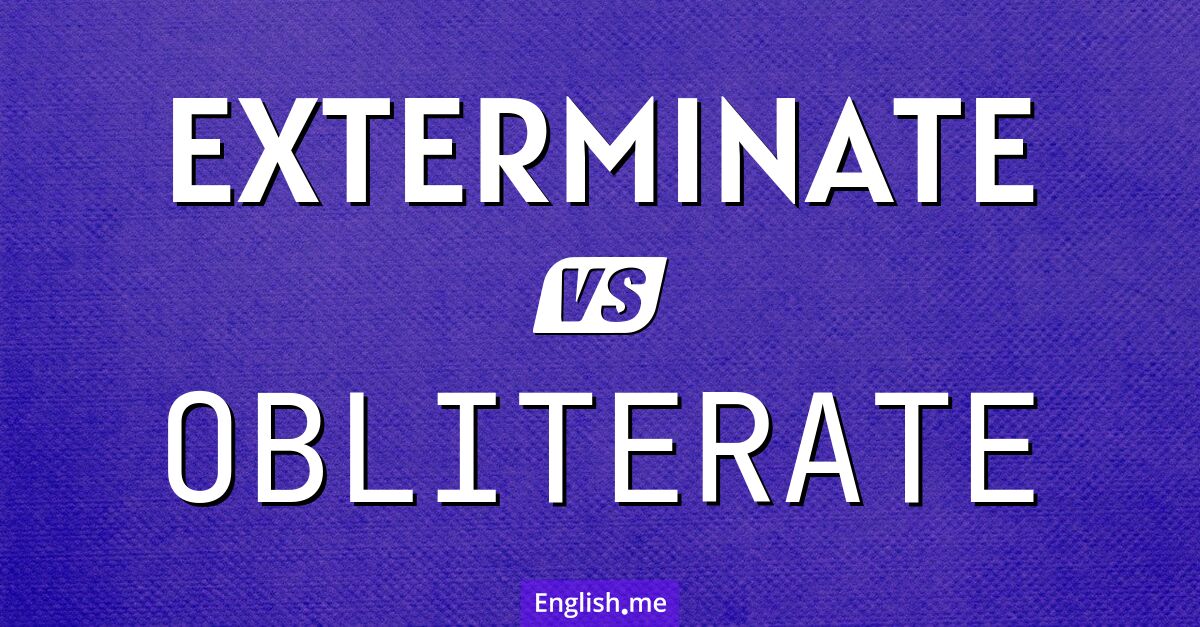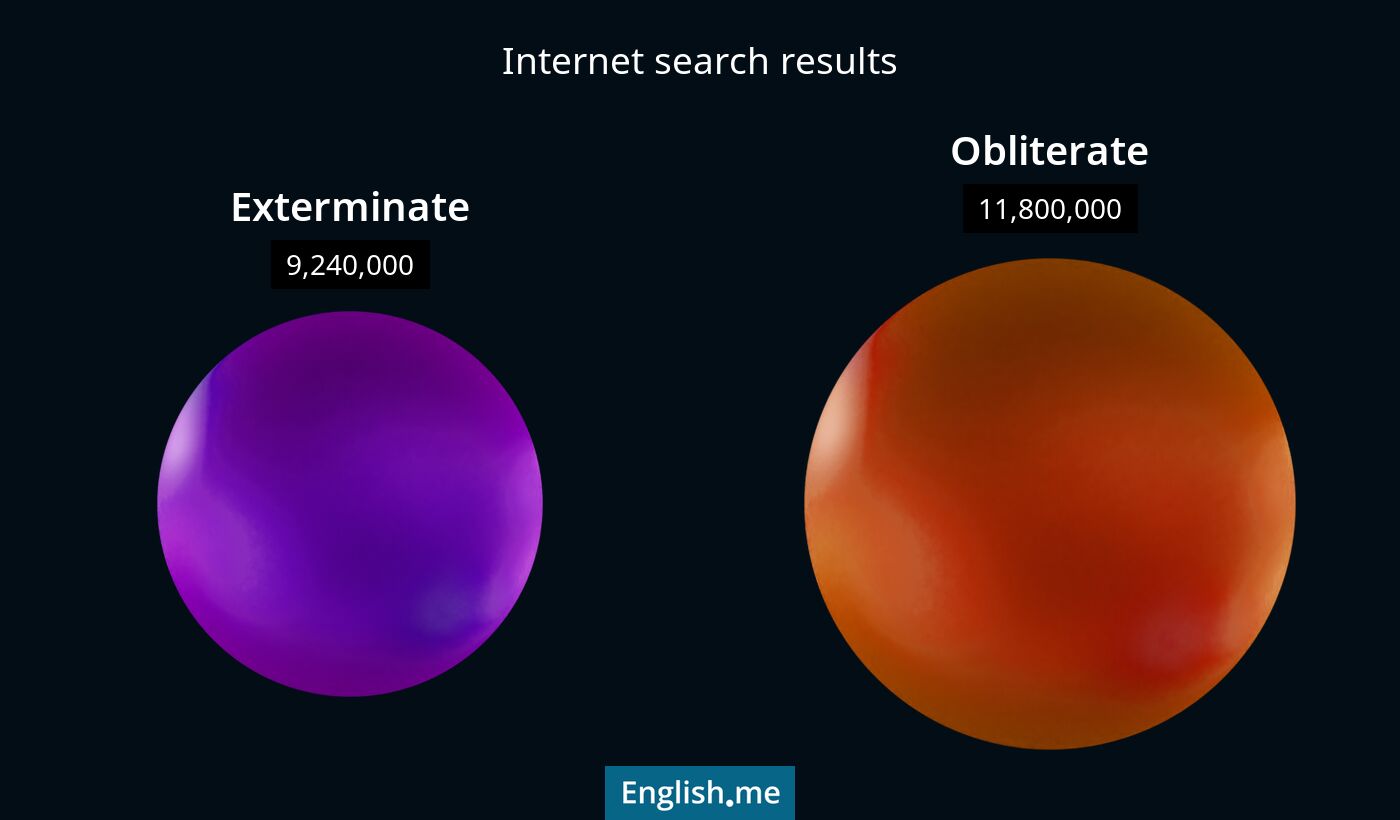Words that destroy: "exterminate" and "obliterate"
Reviewed and edited by  Lloyd Cooper 02/12/2024, 01:20
Lloyd Cooper 02/12/2024, 01:20
English.me team member

 What is similar?
What is similar?
Both "exterminate" and "obliterate" refer to the complete destruction or elimination of something.
 What is different?
What is different?
"Exterminate" typically refers to killing living beings, especially pests or unwanted organisms, emphasizing the eradication of life. "Obliterate" generally means to destroy something so thoroughly that no trace remains, and can refer to objects, structures, or even abstract concepts like memories.
 Which one is more common?
Which one is more common?

 Examples of usage
Examples of usage
Exterminate- The pest control company was hired to exterminate the termites in the house.
- There is a debate about the ethics of exterminating invasive species to protect native ecosystems.
- Efforts were made to exterminate the disease before it spread to more people.
- The bomb was designed to obliterate the entire structure, leaving nothing behind.
- After the scandal, the company tried to obliterate all records of the transaction to avoid legal issues.
- In an instant, the ancient city was obliterated by the volcanic eruption.

 English
English español
español française
française italiano
italiano deutsche
deutsche 日本語
日本語 polski
polski česky
česky svenska
svenska Türkçe
Türkçe Nederlands
Nederlands